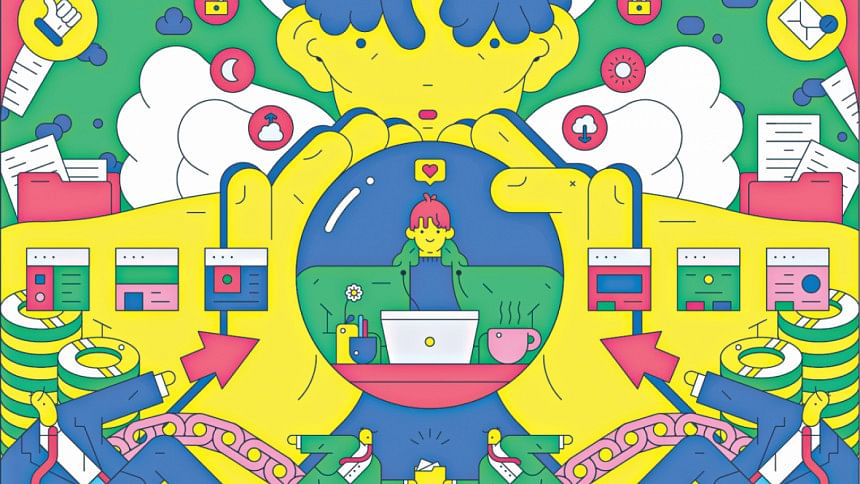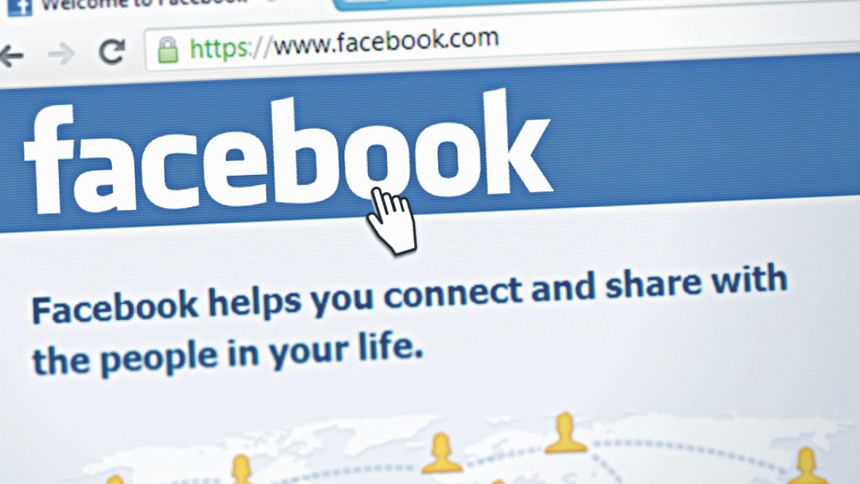INFORMATION OVERLOAD! Can you handle responsibly?

The information comes not just from computers, laptops, tablets and cell phones but also wearable devices and connected cars, the latter two of which alone are estimated to generate 28 petabytes by 2020 and already generates 4 terabytes respectively (according to visualcapitalist.com). To get an even better idea of just how much data we create and consume not just on a daily basis but every minute of the day, look at DOMO’s Date Never Sleeps Reports.
Why is this relevant? It’s because we constantly generate and consume this information, and often times, we don’t react to the information we find online responsibly.
You might have come across posts on social media saying “Rumours are carried by haters, spread by fools and accepted by idiots.” In the age of the internet, however, this is simply not true. There is a lot of information available on the internet and a lot of it is sometimes false, coming in various forms such as fake news, clickbait and deep fakes. The issue of false information being circulated on the internet by people who might be sharing it without knowing that the information is false is widespread, ranging from dubious sensational scientific studies to quotes attributed to the wrong person and can be found in social media, websites of organisations that seem credible and even memes.
As we’ve seen in recent years, one of the things capable of causing immense damage is fake news. And a matter of great concern today is that in the race between fake news and verified deep news, fake news wins.
Now fake news isn’t new. In fact, it has been around for quite a while. In an article titled “The True History of Fake News” on The Economist, the magazine’s deputy editor Tom Standage explains how fake news (or hoaxes as the particular incident mentioned was named) existed as long ago as 1835 when Richard Adams Locke, editor of the New York Sun, published reports of sightings of bizarre creatures that never really existed. Competitors — other newspapers — ousted them and newspapers wanting to be credible sources of information ensured that fake news wasn’t proliferated. However, with the advent of the internet, there has been a resurgence of fake news because of the ease of dissemination on the internet. Standage states in the piece that, “Peddlers of fake news have no reputation to maintain and no incentive to stay honest; they are only interested in the clicks.” Anisa Subedar’s article on BBC, “The Godfather of Fake News” discusses one such man named Christopher Blair who realised he could earn a lot more money by writing fake news instead of true stories and opinions. However, further down the article something is revealed that might seem troubling: Blair says that what he writes is satire and he wants people to know it “isn’t real”.
Information on the internet can be false, incomplete, designed to manipulate, or be shared by people who may not have grasped the message a piece of writing was trying to convey or people who haven’t even read the entire article. If you find the last thing difficult to believe, go through journalist Christie Aschwanden’s 2016 study “We Asked 8,500 Internet Commenters Why They Do What They Do”. In it she discusses various things such as the backfire effect, the Dunning-Kruger effect, and the unreliability of self-reported data — all of these talk about how humans might not be as unbiased as we like to think we are.

Many people believe the stories
Christopher Blair posts to be true and many people comment on sites without fully reading a piece of writing. Keyboard Samaritans around the world may be unknowingly taking part in the spread of falsified information without realising how disastrous the consequences could be for celebrities, ordinary individuals and even entire populations. Humans can be biased, illogical and impulsive and the internet provides people suitable means to express themselves in times of rage and frustration, times at which we might say something that we’ll regret later. Jon Ronson, in his TED Talk titled “How one tweet can ruin your life”, discusses how horrifying the consequences can be if we all hate on people without having all the information and believe what isn’t true. Add to this that there are people and companies willing to exploit emotional vulnerabilities of people to get clicks and shares. However, it doesn’t need to be this way.

A slower, better-thought out reaction
One of the main things we can do is try to control ourselves from sharing or commenting on something too soon. Public callouts are necessary for increasing accountability and raising public awareness about important issues but often times we forget to take into consideration many aspects of a situation and don’t ask pertinent questions to better gauge what has happened. Is it a single mistake or a pattern of behaviour? Is the person young or old? How severe was the damage caused? Take the time to check the facts, look through multiple sources and wait for all the information to come out. Also, often times there might be people, some personally involved or experts on the topic, who might have significant information to add. But people often don’t wait for all parties to respond. Take for example the recent case of Tati Westbrook and James Charles. Tati uploaded a video called “Bye Sister” on May 10 and while James Charles posted an apology video titled “Tati” the same day, it was eight days later on May 18 that he came up with his own 40-minute long video to explain his side of the story, and that too with evidence.
However, in just a little over a week, 3 million people had decided and gone on to unsubscribe to James Charles’s YouTube channel. Compare this to how much slower news travelled in the olden days such as the Battle of Trafalgar that was fought on October 21, 1805 but people only found out about it about two weeks later on November 6 when the London Gazette published it. A crowd that cares about problems in the world is more desired than an apathetic crowd, but we might not have gotten used to how quickly news travels today. So before piling on to a viral incident, ask yourself what is lost if you wait for some time to respond to some shocking news. If not much, it might be a good idea to wait.
Seeing the whole and paying attention to all sides
Many a times we all focus on one side of an incident and forget about the others. Take for example Andrei Terbea’s video, titled “The Other Side of the War on T-Series”, talks about a group of people that I, and perhaps many others, didn’t think about at all. Practicing what was mentioned in the previous point might help us do this better.

Question what you know
Sharyl Attkisson, five-time Emmy Award winner and recipient of the Edward R. Murrow Award for Investigative Reporting, talks about a term that many say might be the solution to the problem of false information online: media literacy. And that’s when I realised that without deeply thinking about it, I had started to believe that media literacy must undoubtedly be good.
But as Attkisson points out, “When interests are working this hard to shape your opinion, their true goal might just be to add another layer between you and the truth.” In the age of instant news, it can be dangerous to passively accept the information that we repeatedly come across without being fully aware that we’ve accepted it as our own views. It is essential to keep questioning what we know to make sure that we don’t end up supporting harmful practices, or stifling or ignoring something which might be beneficial for society. However, it is equally important to be aware of whether our scepticism regarding pressing issues has a firm logical basis, because as we know from viewing the behaviour of certain groups of people unwilling to accept what years of scientific research states about a cure for several diseases, doubting something unreasonably can also be dangerous.
The author of what you are reading
Authors should be willing to explain why they believe in something and think the way they do about a situation. Taking writing out of context can cause the original message of a piece of writing to be lost. In the essay “Digital Maoism: The Hazards of the New Online Collectivism”, Jaron Lanier, a founding father of the field of virtual reality, discusses the issues with collective intelligence online and how we use certain sites like Wikipedia. In it, he says, “Accuracy in a text is not enough. A desirable text is more than a collection of accurate references. It is also an expression of personality.” It is important for us to know who wrote what so we know the purpose of the writing and to better understand the points being made.
Even celebrities of considerable influence sometimes claim they didn’t realise how something quickly caught the attention of millions. As any person who keeps up with the trending topics on platforms like YouTube knows, these claims can be made by people who go to investigate a food company that might be engaging in practices that might harm customers to people generally known for not being involved in drama suddenly making videos of over 40 minutes talking about the issues of another famous person. At a time when we’re always connected and information is only a few clicks away, we ourselves might not understand how seemingly innocuous things can spiral out of control and cause the lives of people to be damaged. However, being a bit more cautious about how we respond to information in any form or media might help.
References
1. https://techjury.net/stats-about/big-data-statistics
2. https://www.theatlantic.com/technology/archive/2018/03/largest-study-ever-fake-news-mit-twitter/555104
3. https://edition.cnn.com/2012/03/06/tech/social-media/misinformation-social-media/index.html
4. https://www.historyhouse.co.uk/articles/speed_of_news.html
5. https://webfoundation.org/2019/03/web-birthday-30
Aliza is Matilda resurrected. Reach her at [email protected]

 For all latest news, follow The Daily Star's Google News channel.
For all latest news, follow The Daily Star's Google News channel. 



Comments